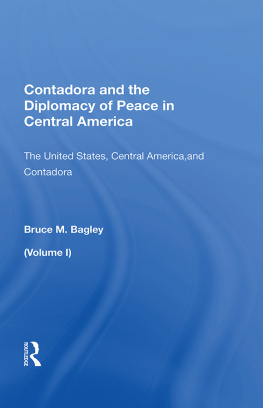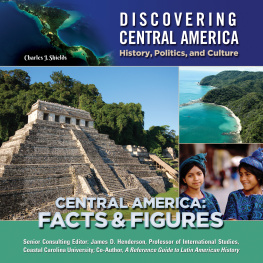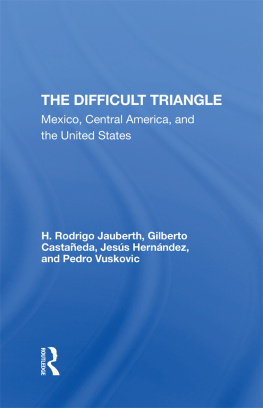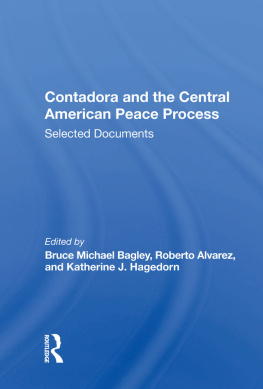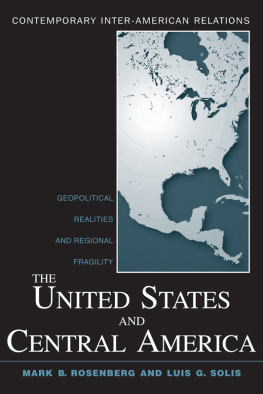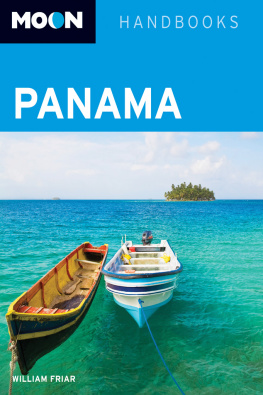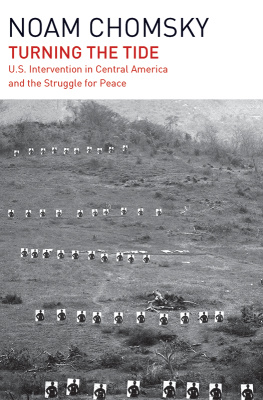SAIS Papers in Latin American Studies
Sponsored by the Centred American and Caribbean Program
Contadora and the Diplomacy of Peace in Central America
Volume I: The United States, Central America, and Contadora
SAIS Papers in Latin American Studies
Sponsored by the Central American and Caribbean Program
Bruce M. Bagtey, Series Editor
Contadora and the Diplomacy of Peace in Central America. Vol. 1: The United States, Central America, and Contadora, edited by Bruce M. Bagley
Contadora and the Diplomacy of Peace in Central America. Vol. 2: The Contadora Process, edited by Bruce M. Bagley
Development Postponed: The Political Economy of Central America in the 1980s, Richard E. Feinberg and Bruce M. Bagley
State and Society in Contemporary Colombia: Beyond the National Front, edited by Bruce M. Bagley, Francisco E. Thoumi, and Juan G. Tokatlian
About the Book and Editor
Contadorathe Central American peace negotiations launched on Contadora Island by Mexico, Venezuela, Colombia, and Panama in 1983 has been the focus of heated polemics in the United States and abroad. Contadoras supporters contend that it represents the only viable alternative to deepening conflict in Central America, which could ultimately produce a direct U.S. military intervention in Nicaragua. Critics of Contadora view the initiative as a collection of unverifiable and unenforceable proposals that could pave the way for the consolidation of a Soviet-Cuban presence and legitimize a Communist regime on the mainland of the Americas, thus irreparably damaging U.S. security interests.
The first of these two volumes examines the evolution of U.S. policy toward Central America and Contadora during the first half of the 1980s in an effort to clarify the nature of the debate over the Contadora process and its potential contributions to regional peace. The contributors define U.S. security interests in Central America and analyze the internal dynamics of the Contadora negotiations as well as Contadora fit with U.S. interests and policies in the region.
Bruce M. Bagley is associate professor of comparative politics and Latin American Studies at the Johns Hopkins University School of Advanced International Studies. He is the co-editor of Development Postponed: The Political Economy of Central America in the 1980s (Westview, 1986).
Published in cooperation with the Central American and Caribbean Program, the School of Advanced International Studies, The Johns Hopkins University
First published 1987 by Westview Press
Published 2018 by Routledge
52 Vanderbilt Avenue, New York, NY 10017
2 Park Square, Milton Park, Abingdon, Oxon OX14 4RN
Routledge is an imprint of the Taylor & Francis Group, an informa business
Copyright 1987 by Taylor & Francis
All rights reserved. No part of this book may be reprinted or reproduced or utilised in any form or by any electronic, mechanical, or other means, now known or hereafter invented, including photocopying and recording, or in any information storage or retrieval system, without permission in writing from the publishers.
Notice:
Product or corporate names may be trademarks or registered trademarks, and are used only for identification and explanation without intent to infringe.
Library of Congress Cataloging-in-Publication Data
Contadora and the diplomacy of peace in Central
America.
(SAIS papers in Latin American studies)
Includes index.
Contents: v. 1. The United States, Central America,
and Contadora v. 2. The Contadora process.
1. Central AmericaForeign relationsUnited
States. 2. United StatesForeign relationsCentral
America. 3. Grupo de Contadora. 4. United States
Foreign relations1981- . 5. GeopoliticsCentral
America. I. Bagley, Bruce Michael. II. Series.
F1436.8.U6C666 1987 327.730728 86-33967
ISBN 0-8133-7335-2 (v. 1)
ISBN 0-8133-7345-X (v. 2)
ISBN 13: 978-0-367-01373-8 (hbk)
Contents
, Riordan Roett
, Bruce Michael Bagley
, Margaret Daly Hayes
Alan L. Sternberger
, Jack Child
, Wayne S. Smith
, William M. LeoGrande
, Richard A. Nuccio
, Cynthia Arnson
, Roy Gutman
, Susan Kaufman Purcell
, Bruce M. Bagley
The Central American and Caribbean Program at the Johns Hopkins University School of Advanced International Studies held a two-day international conference in February 1986 on The United States, Central America, and Contadora The purpose of the conference, which drew participants from the United States, Latin America, Western Europe, and Canada, was to take the pulse of the negotiating process which began in January 1983 as an effort to find a peaceful solution to the conflicts in Central America.
Colombia, Mexico, Panama, and Venezuela initiated the Contadora process (so-called for the location of the first meeting of the foreign ministers of the four countriesan island off the coast of Panama) in 1983 as a regional peace-searching alternative to halt the escalation of violence in Central America. As the process moved ahead, the original four were joined by a Support Group in July 1985 comprised of Argentina, Brazil, Peru, and Uruguay.
As the excellent collection of essays contained in this book will verify, the Contadora process has raised a number of significant issues in U.S. foreign policy in the Western Hemisphere and in the formulation of that policy in Washington. It has brought the United States face-to-face with the major nations of Latin America in a conflict highlighted by sharply different perceptions of U.S. security interests in the region. Contadora has exposed the complexity and difficulty of regional peacekeeping efforts in the hemisphere, particularly when the positions of the United States and Nicaragua seem irreconcilable. Meanwhile, the debate within the Reagan administration over an appropriate U.S. response to Contadora and the issue of Nicaragua has brought the executive branch into direct conflict with Congress.
Initiated on January 89, 1983, the obituary for Contadora has been written a number of times; all efforts to kill the peace process have been failures. The process gained increasing coherence, and credibility, through-out 1983 as it produced a series of statements and documents aimed at establishing peace in Central America. In September 1983, a twenty-one point Document of Objectives was signed by the four Contadora countries and the five states of Central America. That was followed in January 1984 with the Norms for Implementation of the Commitments Undertaken in the Document of Objectives In late 1984, the group promulgated a revised draft of the Act of Contadora for Peace and Cooperation in Central America A Statute of the Verification and Control Mechanisms for Security emerged in April 1985. Later, at the inauguration of President Alan Garca in Lima, Peru, in July, the four South American states added their diplomatic weight to the process.
The U.S. reaction to the Contadora process has been ambivalent. That ambivalence is based in the deeply rooted belief of the president and his chief political advisors that a negotiated, verifiable and enforceable peace in Central America is impossible. According to the Reagan administration, the Sandinista regime is not interested in accommodation. Supported by the Soviet Union, ultimately, its goal is to export revolution throughout the region, posing a dire threat to the security interests of the United States in the region. Thus, the United States reluctantly agreed to discussions with the Nicaraguans in 1984 in Manzanillo, Mexico. Simultaneously, Washington participated in the mining of Nicaraguan harbors in blatant violation of international law and sought to increase lethal support for the contras . Intermittent meetings between Secretary of State Shultz and President Daniel Ortega have produced little of substance. The efforts of the Presidents special representatives, Ambassador Harry Shlaudeman (appointed in mid-1984) and Ambassador Phillip Habib (appointed in 1986) have yielded nothing. The appointment of Elliot Abrams as Assistant Secretary of State for Inter-American Affairs in early 1985 confirmed the view of many observers that the administrations half-hearted efforts at negotiations were, at best, a smoke screen to maintain public support for its policy.

